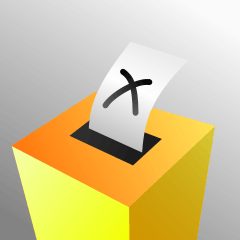Street-level bureaucracy
| Part of a series on |
| Politics |
|---|
 |
|
Academic disciplines |
|
Organs of government |
|
Related topics
|
|
Subseries |
| Politics portal |
Street-level bureaucracy is the subset of a public agency or government institution containing the individuals who carry out and enforce the actions required by laws and public policies. Street-level bureaucracy is accompanied by the idea that these individuals vary the extents to which they enforce the rules and laws assigned to them.
Street-level bureaucrats
The concept of street-level bureaucracy was first coined by Michael Lipsky in 1977, who argued that "policy implementation in the end comes down to the people who actually implement it".[1] He argued that state employees such as police and social workers should be seen as part of the "policy-making community" and as exercisers of political power.
Examples of street-level bureaucrats
Street-level bureaucrats include police officers, firefighters, and other individuals, who on a daily basis interact with regular citizens and provide the force behind the given rules and laws in their areas of expertise.
Problems with street-level bureaucracy
Lipsky identified several problems with street-level bureaucracy, including "the problem of limited resources, the continuous negotiation that is necessary in order to make it seem like one is meeting targets, and the relations with (nonvoluntary) clients".[1] However, some commentators have challenged Lipsky's model. Tony Evans and John Harris."[2] argue that "the proliferation of rules and regulations should not automatically be equated with greater control over professional discretion; paradoxically, more rules may create more discretion." They also argue that the exercise of professional discretion by street-level bureaucrats is not inherently "bad", but can be seen as an important professional attribute.[2]
A 2003 American study, conducted by Steven Maynard Moody of the University of Kansas and Michael Musheno, then of Arizona State University, reiterated the significance of street-level bureaucrats in the political process, asserting that street-level workers "actually make policy choices rather than simply implement the decisions of elected officials."[3] They also claim, based on a study of 48 street-level state employees in two states, that "workers' beliefs about the people they interact with continually rub against policies and rules" and that the prejudices of the street-level bureaucrats influence their treatment of citizens.[3][4]
In 2007, Emil Mackey confirmed that even the Resident Assistants in campus housing exercise their discretion to change policy at the implementation level. Furthermore, these policy implementation changes reflected the individual values of each street-level bureaucrat rather than the will of policymakers. Therefore, this research not only confirmed previous street-level bureaucrat research and literature, but also expanded it to include the Higher Education policy environment.[5]
References
- ↑ 1.0 1.1 Lipsky, M., Street-level Bureaucracy; Dilemmas of the Individual in Public Services, 1980, view summary
- ↑ 2.0 2.1 Evans, T and Harris, J, Street-Level Bureaucracy, Social Work and the (Exaggerated) Death of Discretion, British Journal of Social Work, vol.34, no.6, September 2004, view abstract
- ↑ 3.0 3.1 Maynard-Moody, S and Musheno, M, Cops, Teachers, Counselors: Stories from the Front Lines of Public Service, University of Michigan Press, 2003, view summary
- ↑ Also see Norma M. Riccucci, How Management Matters: Street-Level Bureaucrats and Welfare Reform. Washington, DC: Georgetown University Press, 2005.
- ↑ Mackey, Emil Robert (2008). Street-level bureaucrats and the shaping of university housing policy. Fayetteville, Arkansas: University of Arkansas Press.